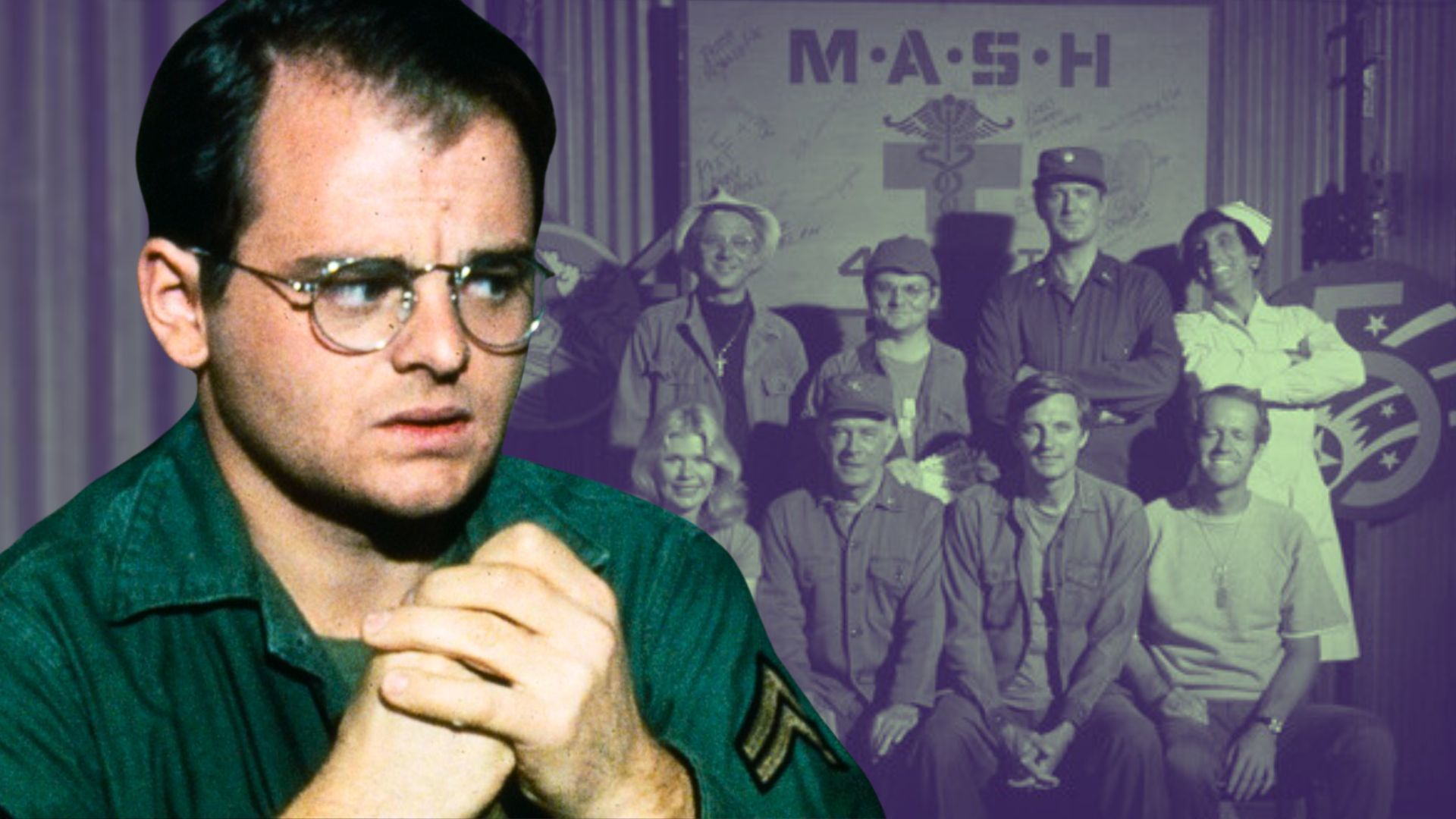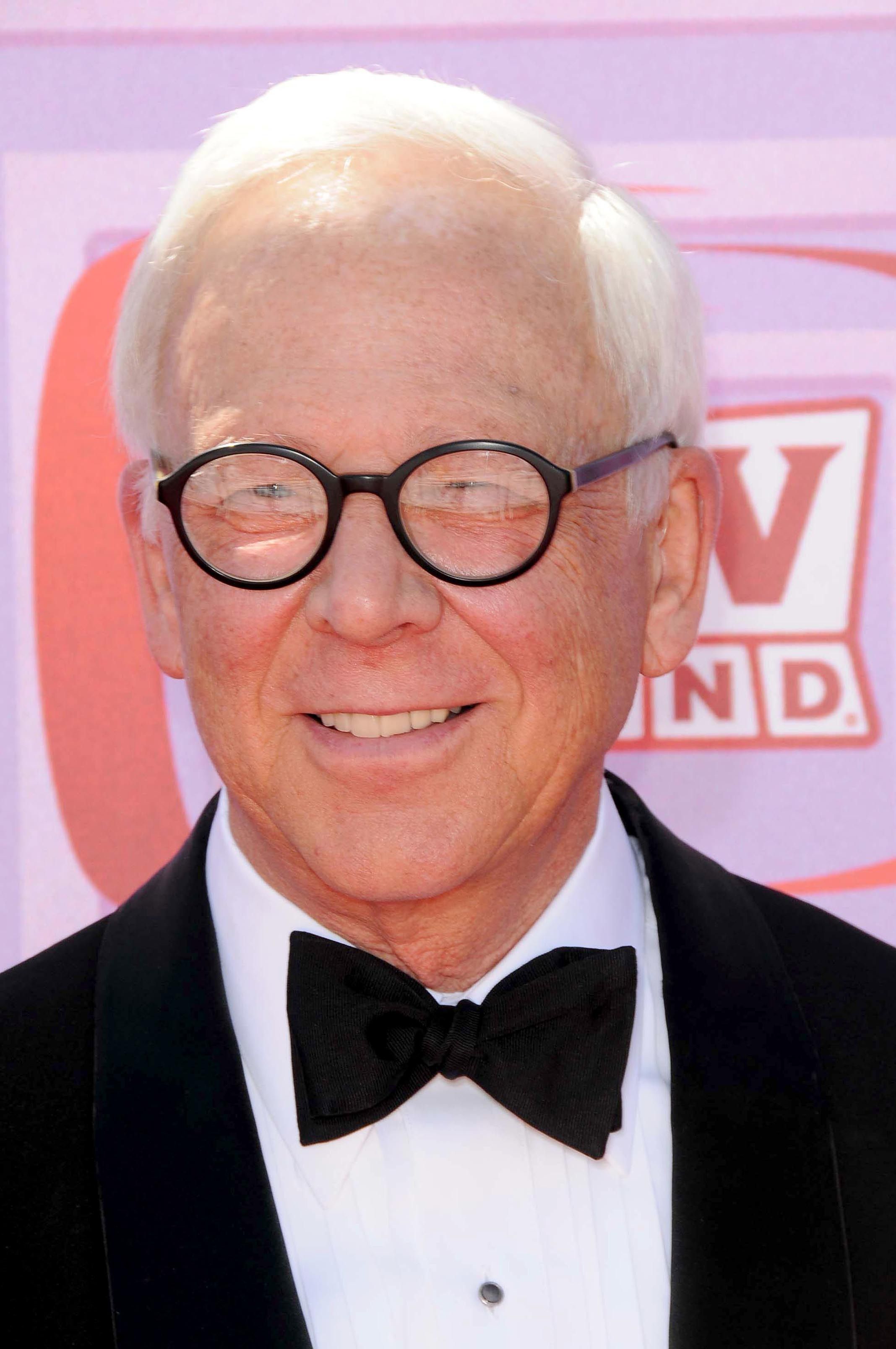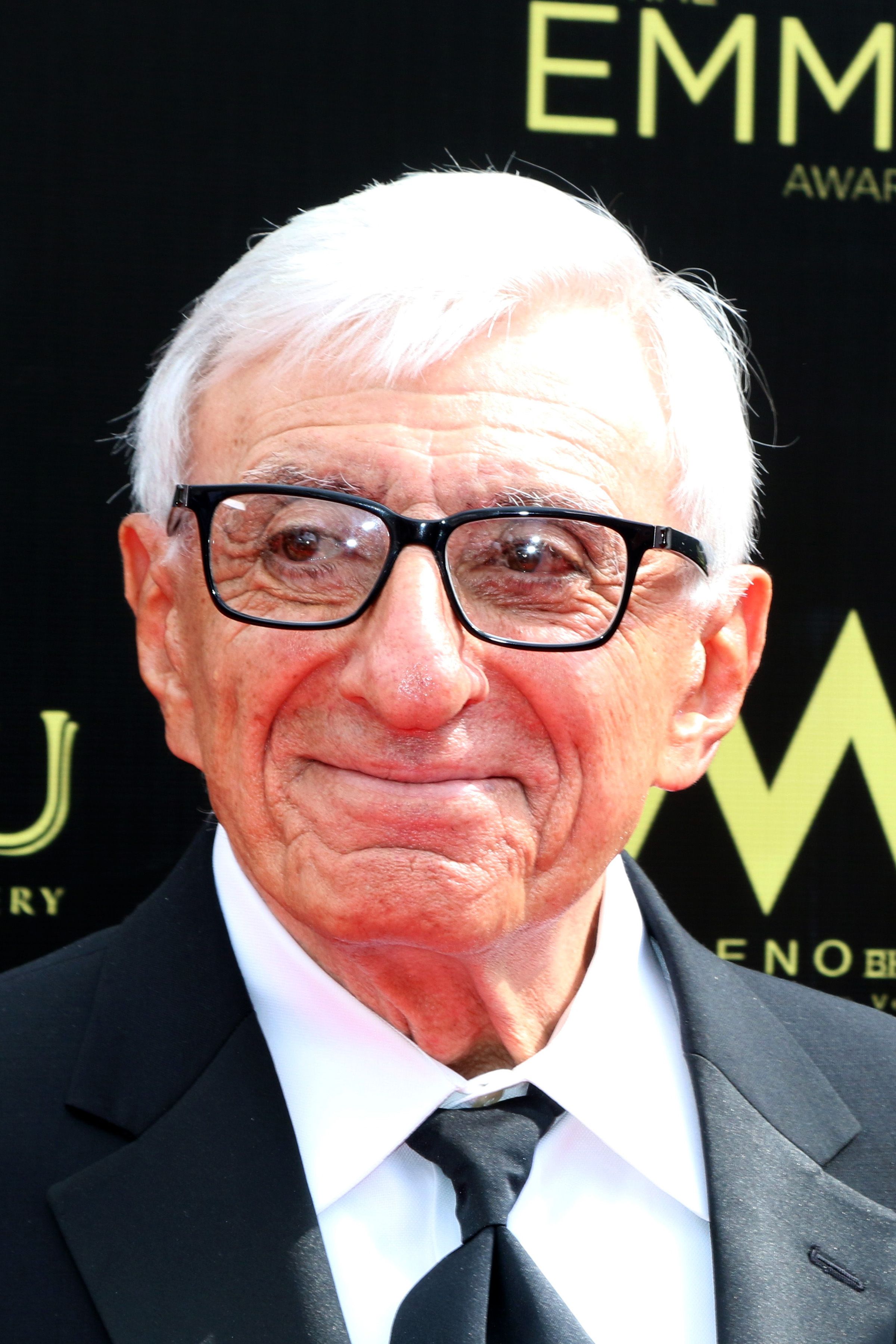For decades, watchers of the beloved television show M*A*S*H wondered why Gary Burghoff, the actor who brought Radar O'Reilly to life, chose to step away from the series well before its final bow. His departure in 1979, after the seventh season, left many fans with questions about the real reasons behind his decision. This was, you know, a character many people loved, a true part of the show's heart.
The character of Corporal Walter "Radar" O'Reilly was, in some respects, a fan favorite, known for his innocent nature and surprising abilities. Burghoff's portrayal was quite distinctive, making Radar a memorable presence on the screen. His exit, then, felt a bit sudden to many who had grown accustomed to seeing him each week.
The story of Gary Burghoff saying his goodbyes to the M*A*S*H team is more involved than some might think. He even asked, it seems, to film his last scene again, wanting to get it just right. There were, apparently, several things that led to him making this big life change, a choice that put other important things ahead of his acting work on the show.
- Tattoo Symbol Happiness
- What Are The Largest Religions In The World
- New Country Artist Male
- Henna Hand Design Simple
- How To Clean Water Out Of Charging Port
Table of Contents
- Gary Burghoff - A Brief Look
- Why Did Gary Burghoff Leave the Show? Exhaustion and Burnout
- The Pull of Family: Why Did Gary Burghoff Leave the TV Show M*A*S*H?
- A Difficult Goodbye: Why Did Gary Burghoff Leave the TV Show M*A*S*H?
- What Was It Like Playing Radar?
- How Did Fans React to Radar's Departure?
- The Lasting Impact of Radar's Exit
- Life After the 4077th
Gary Burghoff - A Brief Look
Gary Burghoff, the actor who brought the character of Radar O'Reilly to life on the popular television series M*A*S*H, had a significant role in the show's early success. His portrayal of the young, somewhat naive, and incredibly perceptive corporal became a central part of the program's charm. He was, you know, a very recognizable face on television for many years.
Before his time on the 4077th, Burghoff was a fresh face in the acting scene. M*A*S*H provided him with one of his first big chances to show what he could do. His work on the series made him a household name, and he quickly became, pretty much, a beloved figure to viewers across the country. People really took to his character, and that's a big deal for an actor.
Here's a little bit about Gary Burghoff:
- Questions To Ask A Female To Get To Know Her
- After The Wedding Netflix
- Lowest Temperature Today Usa
- Least Paid Player In Nba
- Martin Short Bio
| Full Name | Gary Rich Burghoff |
| Known For | Playing Corporal Walter "Radar" O'Reilly on M*A*S*H |
| Years on M*A*S*H | 1972-1979 (Seasons 1-7) |
| Character's Last Episode | "Goodbye, Radar" |
| Other Work | Appeared in various films and TV shows |
Why Did Gary Burghoff Leave the Show? Exhaustion and Burnout
One of the main things Gary Burghoff himself has shared about his choice to leave M*A*S*H was a deep sense of being worn out. He felt, basically, a great deal of exhaustion and a feeling of being completely spent from the demanding schedule. Playing Radar O'Reilly for so many years, for instance, took a lot out of him, both physically and emotionally.
The work involved in creating a weekly television show is, it seems, incredibly intense. Long hours on set, constant lines to learn, and the pressure of keeping a character consistent for a large audience can really take a toll. For Burghoff, this was his first big acting gig, and the continuous demands of it, naturally, became quite overwhelming over time.
He explained that the continuous portrayal of Radar, a character who was in many ways a young, innocent soul, might have added to this feeling of being drained. It's not just the hours, you know, but the mental space an actor occupies when they live inside a character for years. This kind of sustained effort, it turns out, can be quite taxing for anyone in that position.
The feeling of being burned out is, in some respects, a common experience for people in demanding professions. For an actor on a hit show, the expectation to always be "on" and deliver a consistent performance can be a heavy weight. Burghoff's honest talk about this gives us a bit of a peek into the less glamorous side of being a television star.
He mentioned that the requests to know why he left had been coming for thirty years, suggesting a long-held curiosity among fans. His explanation of exhaustion and feeling completely worn out from the continuous work on M*A*S*H, it seems, offers a straightforward reason for his departure. This wasn't, perhaps, a sudden whim, but a cumulative feeling over time.
The Pull of Family: Why Did Gary Burghoff Leave the TV Show M*A*S*H?
Beyond the demands of the work itself, Gary Burghoff also made it clear that his family played a big part in his decision to step away from M*A*S*H. He chose, in a way, to prioritize his personal life and the people closest to him over his professional commitments to the show. This was a very personal choice for him.
The source text tells us that the decision to leave M*A*S*H was not an easy one for him. It was, after all, a highly successful program that brought him a great deal of public recognition. But, when faced with the choice, he opted to put his family's needs and his desire for more time with them ahead of his career on the series. That's a pretty big step for anyone, particularly a public figure.
Director Charles S. Dubin, too, pointed out that there were several things that led to Gary's choice to leave. This suggests that the family aspect was one of multiple considerations, but clearly a very important one. The idea of balancing a demanding career with personal life is, apparently, a challenge for many, and actors are no exception.
For someone in a long-running television show, the schedule can be quite disruptive to family life. Long days, sometimes nights, and often filming away from home can mean missing out on important moments. It's not hard to see, you know, how someone might feel the need to pull back and create a more balanced existence for themselves and their loved ones.
Burghoff's choice highlights a common human desire: to be present for the people who matter most. Even with the tremendous popularity he enjoyed during his years on the show, he made the tough decision to leave before the series reached its very end. This really speaks, it seems, to the strength of his commitment to his family and his well-being outside of work.
A Difficult Goodbye: Why Did Gary Burghoff Leave the TV Show M*A*S*H?
Saying farewell to a character like Radar O'Reilly, a role he played for seven seasons, was not a simple matter for Gary Burghoff. In fact, he actually said goodbye to M*A*S*H twice, so to speak, in a rather interesting way. This detail, it turns out, really shows how much the role meant to him and how he wanted his departure to be just right.
He revealed in a new television special that he asked to reshoot his final scene as Corporal Radar O'Reilly. This request suggests a desire for the moment to feel truly complete and fitting for a character who had been such a big part of viewers' lives. It's almost as if he needed to ensure the last impression was exactly as he envisioned it, which is pretty thoughtful.
The final episode for his character, called "Goodbye, Radar," is a significant one in the history of the show. It marked a major shift, as one of the original and most beloved characters left the 4077th. The fact that Burghoff himself felt the need to make sure that scene was perfect, you know, speaks volumes about his dedication to the character and the show's legacy.
Filming a character's exit, especially one as popular as Radar, can be an emotional experience for an actor. Burghoff described the filming of Radar's goodbye scene as "awful," which gives us a sense of the emotional weight involved. It wasn't just another day on set; it was, clearly, a moment of profound personal and professional closure for him.
This willingness to reshoot a pivotal moment shows a deep respect for the audience and the character's journey. It wasn't just about finishing his contract; it was about ensuring Radar's story, as far as Burghoff was concerned, had a proper and memorable conclusion. This attention to detail, it seems, is a hallmark of a truly dedicated performer.
What Was It Like Playing Radar?
Playing Radar O'Reilly for seven seasons meant stepping into the shoes of a very specific kind of person. Radar was known for his innocence, his unique ability to hear incoming choppers before anyone else, and his rather endearing way of navigating the chaos of the M*A*S*H unit. For Gary Burghoff, this was, in some respects, a continuous performance of a character who remained largely unchanged over time.
This consistent portrayal, while beloved by audiences, might have contributed to the feeling of exhaustion Burghoff spoke about. Maintaining that level of specific characterization, especially for a young, somewhat childlike persona, could be, you know, mentally demanding. It's not just showing up; it's embodying someone else for years on end.
Radar's popularity was immense. He was a character that audiences connected with deeply, seeing him as the heart of the camp in many ways. This popularity, while a sign of success, also brings its own kind of pressure. The expectation to always deliver that familiar, comforting presence, it seems, could be a heavy burden for an actor.
Burghoff’s performance was, literally, a cornerstone of the show's appeal. His quiet observations and unexpected moments of wisdom made Radar more than just a comedic sidekick. He was a character with real depth, and bringing that to life day after day, week after week, would require a lot of energy and focus from the actor. That, in itself, is quite a task.
So, while the role brought him tremendous public recognition and affection, it also came with its own set of challenges. The constant need to be "Radar," rather than just Gary, for such a long stretch of time, naturally, played a part in his eventual decision to seek a change. It's like living in someone else's skin for a very long time.
How Did Fans React to Radar's Departure?
When news of Gary Burghoff's departure from M*A*S*H spread, it left many fans with a lot of feelings. The source text mentions that his exit left people confused, heartbroken, and full of questions. This reaction is, you know, quite understandable given how much Radar meant to the show's audience.
Radar O'Reilly was, for many, a steady and comforting presence in a show that often dealt with very serious and emotional topics. His innocent perspective and his genuine kindness offered a balance to the often cynical humor and the harsh realities of war. To see such a central figure leave, naturally, felt like a big loss to the viewing public.
The show had dominated the television lineup for many seasons, and Radar had been there from the very start. His absence created a noticeable gap in the cast, and viewers had to adjust to a new dynamic without him. It's almost like losing a familiar friend from a long-running gathering, which can be a little jarring.
For decades after his departure, fans continued to ask why Gary Burghoff left. This ongoing curiosity, it seems, shows just how much of an impact his character and his presence had. People genuinely cared about Radar, and they wanted to understand the reasons behind his choice to walk away from such a popular series.
The emotional response from the audience highlights the deep connection people form with television characters. Radar was more than just a character on a screen; he was, in a way, a part of many people's weekly routines and a source of comfort. His departure, therefore, was felt quite keenly by those who had followed the show for years.
The Lasting Impact of Radar's Exit
Gary Burghoff's departure from M*A*S*H, particularly as the character of Radar O'Reilly, had a lasting effect on the show itself and its audience. While the series continued for several more successful seasons, the absence of Radar changed the dynamic of the 4077th. It was, in some respects, a significant turning point for the program.
The writers and producers had to figure out how to fill the void left by a character who was so integral to the camp's operations and its emotional core. Radar's unique abilities, like his foresight regarding incoming choppers, were often used for comedic effect and plot progression. His exit meant, obviously, that these elements needed to be handled differently or replaced.
For viewers, the show felt a little different without him. Even though M*A*S*H remained a powerful force on television, Radar's innocence and grounding presence were missed. It's like a key ingredient being taken out of a favorite recipe; the dish might still be good, but it's not quite the same. That, in a way, was the feeling for many.
The fact that Burghoff's final episode, "Goodbye, Radar," is so often remembered and discussed, too, speaks to its importance. It wasn't just another episode; it was a moment of farewell to a character who had truly captured the hearts of millions. The episode itself became a memorable part of television history, marking a significant transition.
His choice to leave, driven by personal needs like exhaustion and family time, also opened up conversations about the demands of long-term acting roles. It showed that even in a highly popular and beloved show, the well-being of the individual behind the character is, essentially, paramount. This perspective, it seems, has resonated with many over the years.
Life After the 4077th
After his time on M*A*S*H came to an end in 1979, Gary Burghoff's acting career took a bit of a different path. The source text tells us that his career would take a backseat, allowing him to spend more time with his family. This was, apparently, a direct result of his decision to prioritize his personal life over the intense demands of a hit television series.
Even though he stepped back from the regular grind of a weekly show, Burghoff still made appearances in movies and television programs from time to time. He didn't completely leave the acting world, but his involvement was, you know, on his own terms, fitting into a life that now centered more around his loved ones.
His choice to reduce his acting commitments after M*A*S*H reinforces the reasons he gave for leaving the show in the first place. It wasn't about finding another big role immediately; it was about finding a different kind of balance. This kind of shift, it seems, is something many people aspire to, especially after a period of intense work.
Burghoff has, over the years, continued to share insights into his time on M*A*S*H and his reasons for moving on. His openness about feeling burned out and wanting to be with his family has provided a clear and consistent explanation for fans who wondered for so long. He's been pretty honest about it, which is good.
His story serves as a reminder that even for those in the public eye, personal well-being and family connections often hold the greatest value. The legacy of Radar O'Reilly remains strong, but so does the story of the actor who played him, a person who made a very personal choice for his own life. That, in a way, is just as important as the character itself.
This article has explored the reasons behind Gary Burghoff's departure from the television show M*A*S*H, focusing on his feelings of exhaustion and burnout, as well as his desire to prioritize his family. We looked at how his decision, which included asking to reshoot his final scene, impacted both him and the show's devoted audience. The piece also touched on the challenges of playing Radar O'Reilly for so long and the lasting effect his exit had, along with a brief look at his life after the series.
- Lil Bibby Lil Brother
- Most English Spoken Country
- What Are The Largest Religions In The World
- Least Paid Player In Nba
- Mark Cuban Family 2023


